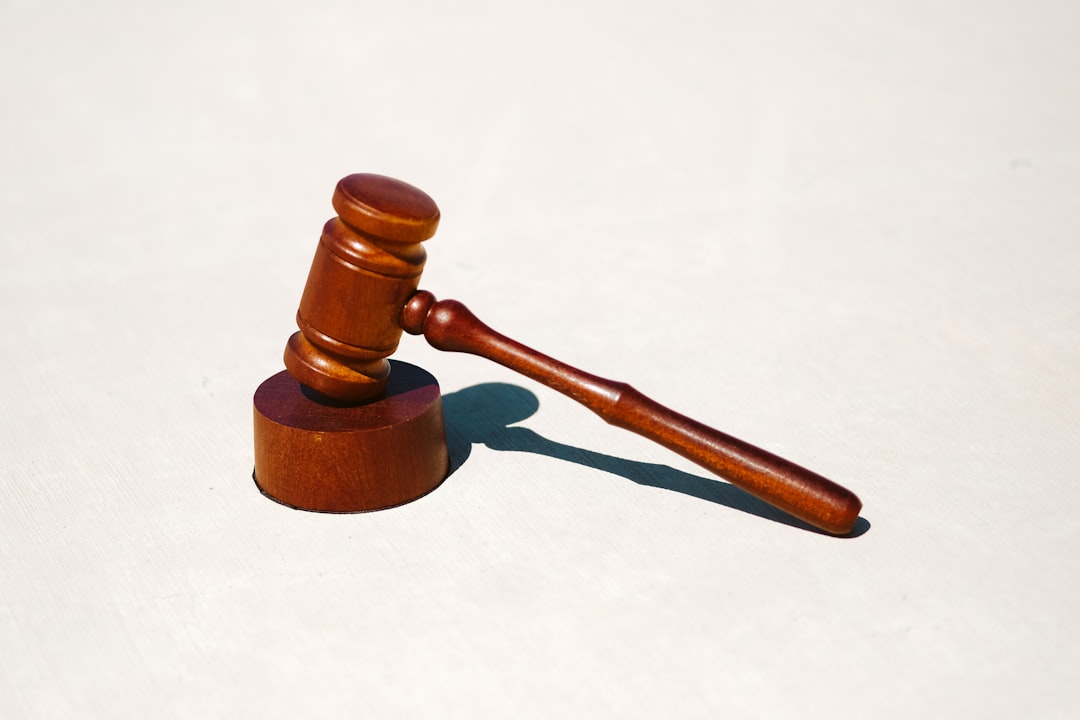South Dakota residents facing the nuisance of unwanted robocalls and spam texts have recourse under both federal and state laws. To protect your communication privacy and report these intrusions effectively, it's essential to be aware of your rights under the Telephone Consumer Protection Act (TCPA) and South Dakota's consumer protection statutes. If you receive unsolicited automated calls or messages, a local attorney specializing in telecommunications laws can guide you through the complaint process against offending companies. Robocall law firms SD and robocall attorneys SD are equipped to assist with this, offering expertise on how to report spam texts Lawyer SD or how to report spam texts attorney SD, and ensuring that your case is handled in accordance with local regulations. These legal experts can also help you seek financial recompense for the disturbances caused by such violations. By documenting each incident and consulting with a seasoned robocall attorney in SD, you actively participate in enforcing consumer protection laws and contribute to the broader effort to mitigate this pervasive issue within the state. For personalized assistance and legal recourse against robocalls, connecting with a specialized law firm in South Dakota is highly recommended.
If you’ve found yourself inundated with unwanted robocalls or spam texts in South Dakota, it’s time to take action. Understanding your rights and the steps to effectively report these nuisances is crucial for regaining control over your communication lines. This article delves into the protective measures available under both federal and state laws, guiding you through the process of identifying, reporting, and seeking financial compensation for such intrusions. Learn how South Dakota’s Do Not Call Act complements the Telemarketing Sales Rule (TSR) and Do Not Call Implementation and Compliance (DNCI) regulations at the federal level to safeguard your privacy. Furthermore, discover the role a specialized robocall lawyer or attorney in South Dakota can play in securing your rights and potential compensation. Whether you’re seeking guidance on how to report spam texts through legal channels or looking for a proficient robocall law firm or attorney SD, this article provides actionable advice to navigate the legal landscape effectively.
- Understanding Your Rights Against Robocalls in South Dakota
- – Overview of Telemarketing Sales Rule (TSR) and Do Not Call Implementation and Compliance (DNCI) regulations at the federal level.
Understanding Your Rights Against Robocalls in South Dakota
In South Dakota, residents are protected by laws designed to shield them from the nuisance of unwanted robocalls and spam texts. Understanding your rights is the first step in taking control of your communication privacy. If you’ve received unsolicited automated calls or text messages, you have recourse. The Telephone Consumer Protection Act (TCPA) and South Dakota’s own consumer protection laws empower you to report these intrusions. To initiate action against such violations, you can reach out to a local attorney with expertise in this area. A robocall law firm or robocall attorneys in SD are well-versed in the intricacies of telecommunications laws and can guide you through the process of reporting these offenders. They can help you navigate the formal complaint process, which is crucial for holding companies accountable and potentially securing financial compensation for your inconvenience. By reporting spam texts to a lawyer experienced with SD’s regulations, you contribute to the enforcement of these laws, protecting not only yourself but also the broader community from similar invasions of privacy. Robocall lawyers SD are dedicated to defending consumers’ rights and ensuring that companies comply with legal standards for responsible telemarketing practices. Engaging a robocall law firm SD will not only provide you with the necessary support to address these issues but also demonstrates your commitment to upholding the integrity of communication channels within South Dakota.
In South Dakota, residents are increasingly targeted by unwanted spam texts and robocalls, a nuisance that can infringe upon personal privacy and cause significant distress. If you’re facing this issue, it’s crucial to take action against these persistent disturbances. One of the first steps in combating this is to understand your rights and the avenues available for reporting spam texts. The state provides mechanisms through which you can report such activities to relevant authorities. For instance, if you receive a spam text that violates the Telephone Consumer Protection Act (TCPA), you have the option to seek legal recourse. A lawyer specializing in robocall cases in South Dakota can guide you through the process of reporting and can potentially help you secure financial compensation for the invasions and disruptions you’ve experienced. These legal experts are well-versed in the intricacies of telecommunications laws and can navigate the complexities on your behalf, ensuring that those responsible are held accountable. In South Dakota, there are reputable robocall law firms and attorneys who dedicate their practice to protecting consumers from these types of communications harassment. By engaging with a lawyer for robocalls in SD, you not only protect your own rights but also contribute to the larger effort to curb this pervasive issue, making it a safer environment for everyone within the state.
Furthermore, staying proactive against spam texts and robocalls is key. It’s advisable to document each instance of unwanted contact and report it promptly to both the Federal Communications Commission (FCC) and the South Dakota Attorney General’s office. This documentation can be invaluable should you decide to seek legal action, as it provides concrete evidence of the harassment you’ve endured. In South Dakota, there are established law firms that specialize in such cases, with attorneys who understand the gravity of these intrusions and are equipped to fight for your rights. By working with these legal professionals, you can not only pursue financial compensation but also help to disrupt the operations of those responsible for these illegal activities, ultimately contributing to a reduction in spam texts and robocalls across the state.
– Overview of Telemarketing Sales Rule (TSR) and Do Not Call Implementation and Compliance (DNCI) regulations at the federal level.
In South Dakota, as across the United States, consumers are afforded robust protections against unwanted telemarketing calls and robocalls under the Telemarketing Sales Rule (TSR) and the Do Not Call Implementation and Compliance (DNCI) regulations enforced by the Federal Communications Commission (FCC) and the Federal Trade Commission (FTC). These federal guidelines prohibit most telemarketing calls to consumer telephone lines after they have registered on the National Do Not Call Registry. Consumers who continue to receive unsolicited calls may report spam texts or robocalls directly to the FCC or through a law firm specializing in such matters. If you’re encountering persistent robocalls and seeking legal recourse, consulting with a robocall lawyer or attorney in South Dakota can be beneficial. These legal professionals are well-versed in the relevant laws and can guide you through the process of reporting offenders, as well as potentially seeking financial compensation on your behalf.
South Dakota consumers have several avenues to report spam texts and unwanted robocalls. The FCC provides a platform for reporting such incidents, which helps in identifying and penalizing violators. However, if you’re in need of personalized assistance or are considering legal action against repeat offenders, reaching out to a robocall law firm in South Dakota is advisable. These firms not only help in the enforcement of DNCI regulations but also advocate for consumers’ rights, ensuring that your complaint is handled with due diligence and that you receive the full protection under the law. Robocall attorneys in SD are equipped to navigate the complexities of these laws and work towards securing the financial compensation you may be entitled to for the nuisance caused by such intrusive calls.






